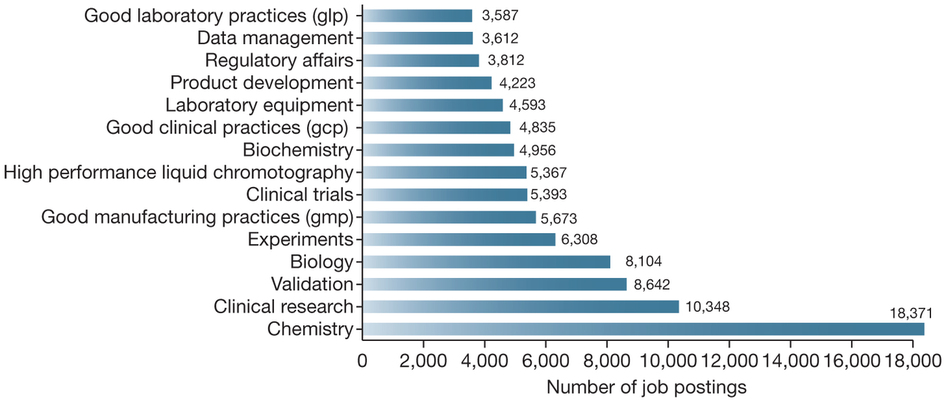バイオテクノロジー, as is the case with many fields today, is becoming increasingly interdisciplinary. Once requiring a specific set of specialized skills, the industry trends now show that individuals with interdisciplinary training are favored. A Nature誌に掲載されたレポート depicts that a large part of job postings not only include specialized subjects like ケミストリー, but also involve knowledge in validation, data management and good manufacturing practices. Often, it may not be possible for labs to recruit this talent in-house, and so the on-demand market is continuously growing.

このような人材難は、研究者に限ったことではありません。最近では、バイオテック企業にまで人材が集まってきています。 ウォール街のトップクラスの人材投資銀行家を含む。バイオテクノロジーが持つ驚異的な可能性と、それが約束する未来については、疑いの余地はない。ウォールストリートで活躍する人たちの多くは、この業界を信じて、それまでの仕事を辞めることができるほどエキサイティングな展望を持っていたからこそ、転職したのです。彼らの多くは職務に就いたばかりで、これまでとは異なるスキルを業界に導入しており、偏見のない豊富な知識を持ち合わせています。
多くのバイオテクノロジー企業や研究所は、求めているスキルごとにフルタイムスタッフを雇用できるようなリソースを持っていません。オンデマンド市場は急速に拡大しており、特定のスキルを持つ個人は高く評価されています。 ブルース・ブース氏によるとしかし、バイオテック業界は35年の歴史の中で、今後2年間にこれほど多くの新しい取締役を必要としたことはありません。
“Collaboration between biotechnology companies recommends itself as an important component of the next stage in biotechnology’s evolution. There are three fundamental arguments that suggest this strategy will work: First, no single technology is likely to meet all the drug innovation needs of modern society. Second, no single company or type of company can possibly possess all the answers. Third, the rapid, and sometimes perilous, pace of the changes affecting the economics of biotechnology make the management of these companies more receptive to alternative strategies.”